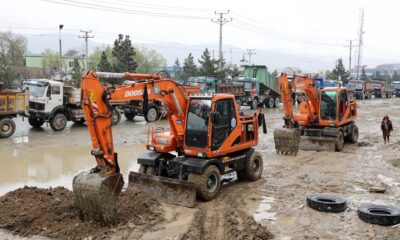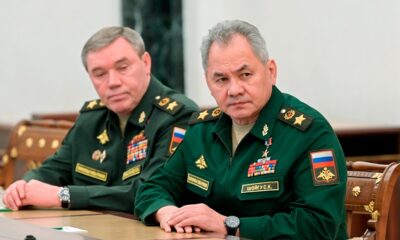Business
Almost 1 million square meters of Afghan carpets exported in past year
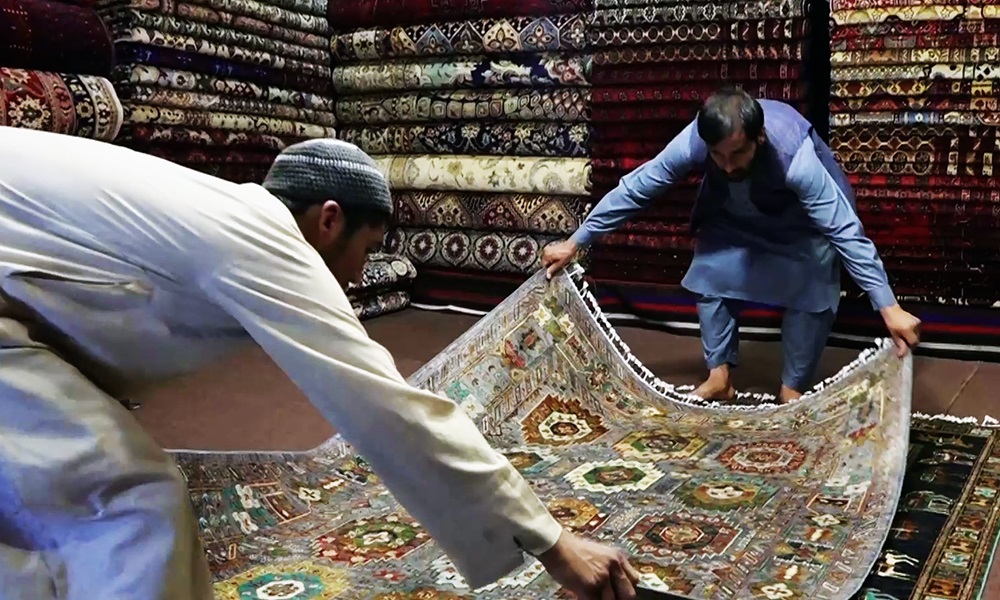
The carpet manufacturers’ union says the carpet weaving industry has been doing well and in the past year almost one million square meters of carpets has been exported.
Union officials said they expect business to increase in the coming year.
The carpet industry is one of the oldest industries in Afghanistan, and is the financial backbone of thousands of families around the country.
“This number is more than in 1401 (solar year) and will increase because the statistics show us the same, and if I put it in percentage terms, we can export up to 15 percent,” said Mohammad Reza Heydari, the head of the Carpet Manufacturers Union.
Some carpet sellers want the Ministry of Commerce and Industry to market Afghan carpets both inside and outside the country.
“We want the Islamic Emirate to provide better conditions for export. Currently, our exports are low,” said Abdul Wali Sakhizada, a carpet seller.
“We represent Afghanistan and show Afghan products to the world because they are excellent in terms of quality and condition,” said Azizullah, another carpet seller.
At the same time, the Ministry of Commerce and Industry says that they have many plans to support carpet production and some of these plans have been implemented.
“Our exports have been very good, and large exhibitions are still going to be held in Turkey, Russia, and the United Arab Emirates, in all three of these countries, fortunately, our carpet sector will play an active role,” said Abdul Salam Jawad Akhundzada, the spokesman of the Ministry of Commerce and Industry.
A number of economic experts say that when the government increases investment in carpet production, both job opportunities will be provided and the national income of the country will be strengthened.
Business
Azizi calls on Malaysian investors to invest in Afghanistan
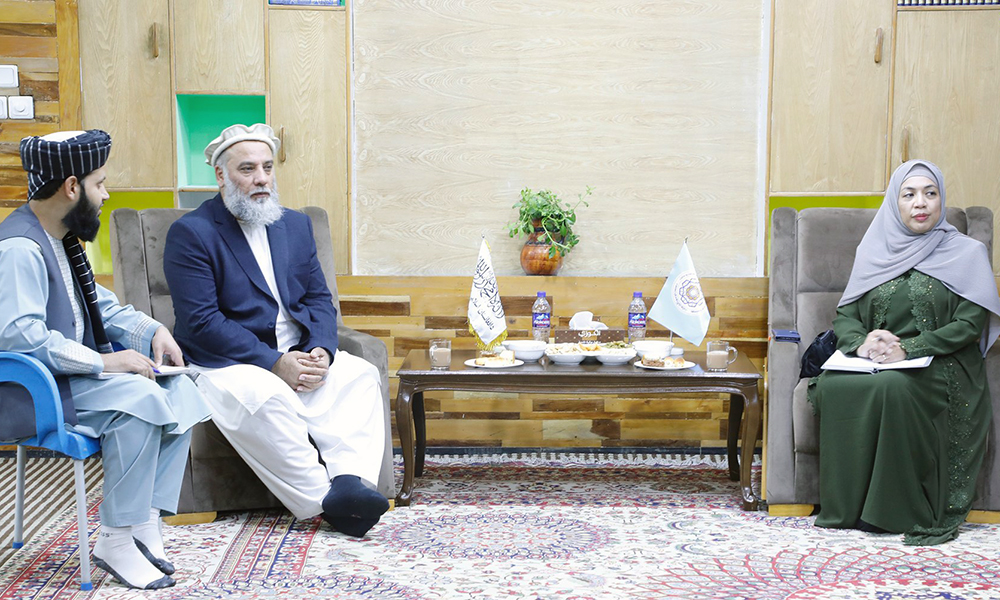
Nooruddin Azizi, Acting Minister of Commerce and Industry, met with representatives from the ministries of foreign affairs, defense and interior of Malaysia, along with other senior officials, on Wednesday and called on Malaysians to invest in Afghanistan.
The visiting delegation is being led by senior diplomat Dr. Shazelina Zainul Abidin.
According to the IEA’s foreign ministry, the two sides discussed bilateral trade, holding a business communication conference to strengthen trade relations between the two countries, the trade balance between Afghanistan and Malaysia, and creating a market for Afghan products, including carpets, cotton, and minerals.
According to the ministry, at the end of the meeting, the Acting Minister emphasized the increase of investment from regional countries in Afghanistan and called on Malaysian investors to also invest in Afghanistan.
Business
Afghanistan starts exporting via railway to Turkey

The Ministry of Interior says that Afghanistan has started exporting goods to Turkey via the Herat-Khaf railway line.
In a post on X, the ministry said: “Afghanistan’s exports to Turkey started in a calm atmosphere through the Herat-Khaf railway line.”
The ministry added that one train will run daily for a month and then two trains will run daily.
According to the ministry, the security of Khaf-Herat railway line is provided by the guards of the National Public Protection Agency.
Khaf-Herat railway project not only connects Iran and Afghanistan by rail, but also completes a 2,000-kilometer route along the east-west rail corridor from China, through Uzbekistan, to Afghanistan, to Iran, and on to Turkey and Europe.
As a landlocked country, this railway network will provide a safe route to connect with Europe via Iran’s railway network and Iran’s southern ports.
This railway line is strategic for trade between Iran and Afghanistan and will allow six million tons of goods to be sent between the two countries.
Business
Afghanistan, Kazakhstan to hold joint expo in Kabul
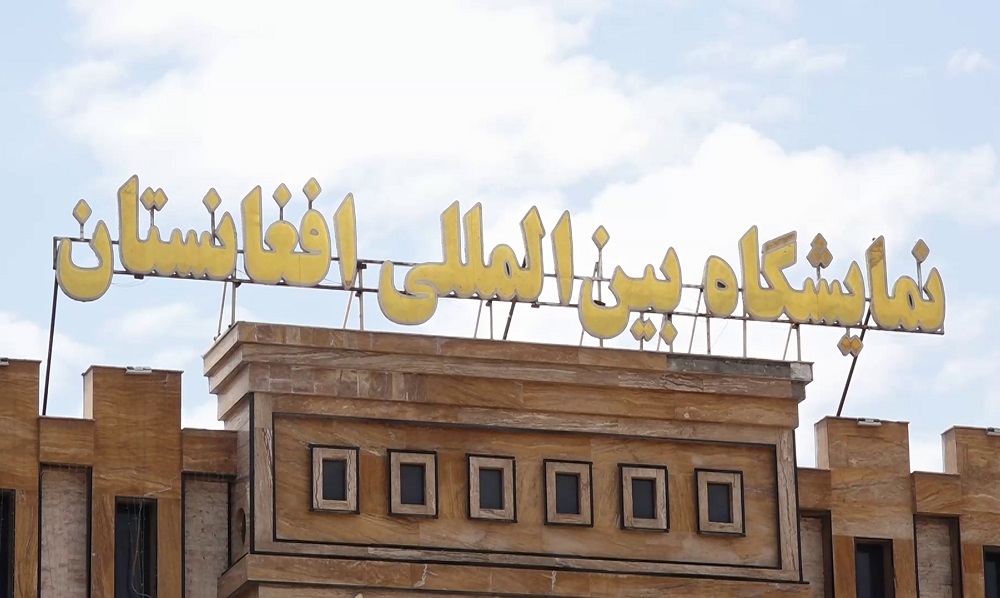
A joint expo between Afghanistan and Kazakhstan will be held in Kabul in the next four days, officials said on Sunday.
Officials of the Ministry of Industry and Commerce said that the two-day expo will be held for the purpose of expanding and strengthening trade relations between the two countries.
“This expo will be held as a follow-up of the Kazakh-Afghan international expo, which was held in the city of Astana, Kazakhstan, with the participation of a large delegation of the government and the private sector of the Islamic Emirate of Afghanistan,” Abdulsalam Javad Akhundzadeh, the spokesman of the Ministry of Industry and Commerce, said.
“At this expo, domestic products from different sectors of Afghanistan and the Republic of Kazakhstan will be put on display for two days.”
According to officials, 40 large Kazakh companies, and 40 large Afghan companies will exhibit their products.
Mohammad Saber Latifi, head of the Afghanistan International Expo Center, said that fruits, minerals and commercial services will be displayed at the expo.
During the expo, various memorandums of understanding for the trade of goods are also expected to be signed by companies.
-

 Latest News4 days ago
Latest News4 days agoRashid Khan named AWCC’s brand ambassador
-

 World4 days ago
World4 days agoMalaysian navy helicopters collide in mid-air, 10 killed
-

 Sport4 days ago
Sport4 days agoJaiswal ton powers Rajasthan to big IPL win
-

 World3 days ago
World3 days agoNorth Korea officials visit Iran in a rare public trip
-

 Sport4 days ago
Sport4 days agoMawj Sahil player scores stunning halfway line goal in 1-0 win over Jawanan Wahedi
-

 Latest News5 days ago
Latest News5 days agoAt least 1,500 families affected by recent floods: IRW
-

 Sport3 days ago
Sport3 days ago‘Serious talent’ Fraser-McGurk bonds with Warner to light up IPL
-

 Latest News4 days ago
Latest News4 days agoUS report cites ‘significant deterioration’ in Afghan women’s rights last year






